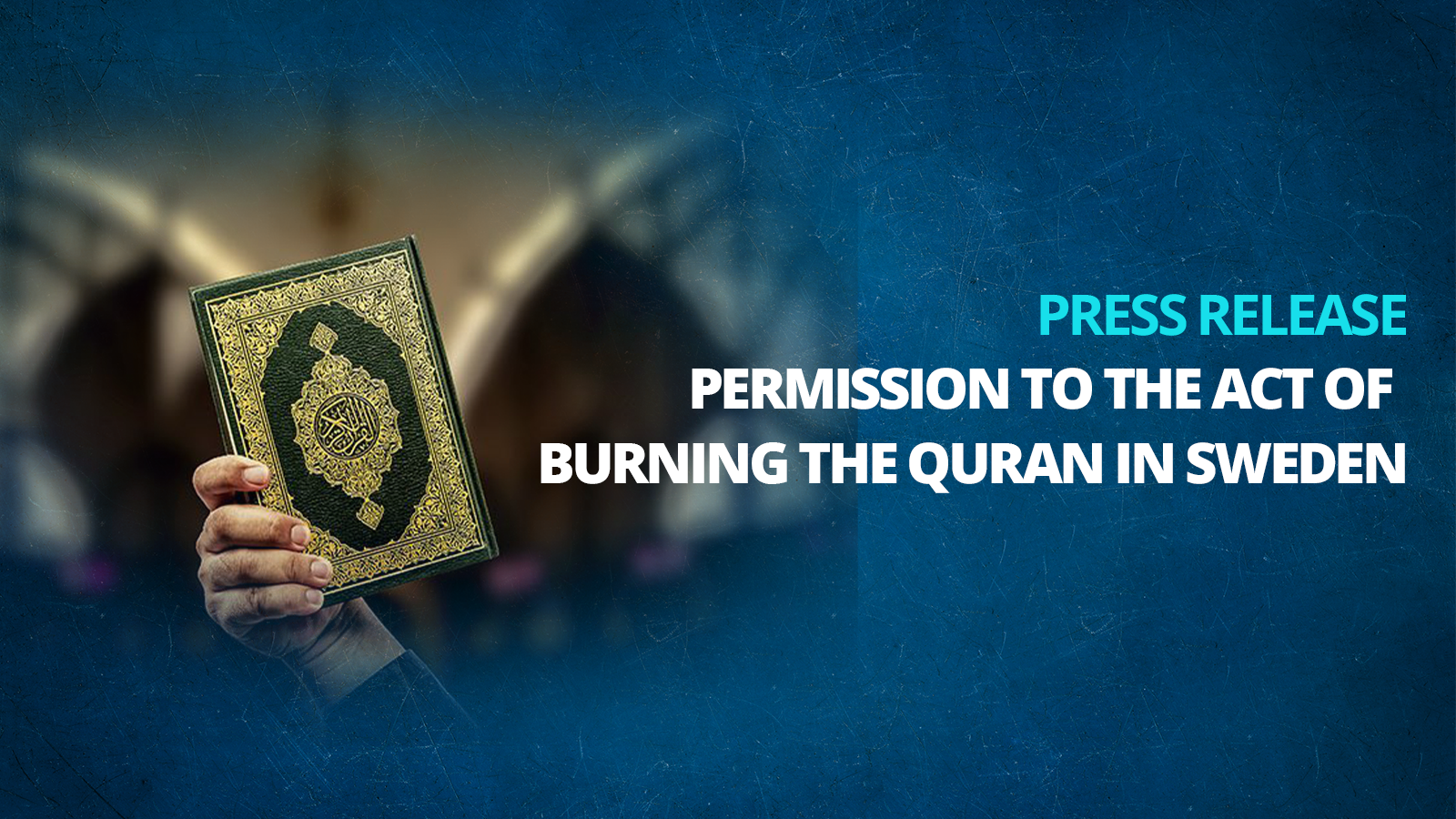
In the print and visual media, it was reported that the leader of the far-right Hard Line Party (Stram Kurs) in Sweden allowed the burning of the Holy Quran in front of the Turkish Embassy in Stockholm.
Pursuant to the United Nations Strategy and Plan of Action on Hate Speech published in 2019, hate speech is defined as any kind of expressions that exclude a part of the society, aim at oppression or violence, spread, incite, encourage or legitimize forms of hatred based on intolerance. Hate speech against Muslims, mostly come in sight as a hate crime. Within the context of its Report on Hate Crimes (2019), Organization for Security and Co-operation in Europe (OSCE), Office for Democratic Institutions and Human Rights (ODIHR) classifies hate crimes as racism, xenophobia, antisemitism, prejudices against people with disabilities, Roma people, gender, Muslims and Christians.
In the context of hate speech and hate crimes, Islamophobia is frequently on the agenda. In order to strengthen international efforts based on respect for human rights and different religions and beliefs and promoting a global culture of peace, March 15 was recognized as the “International Day Against Islamophobia” by the UN General Assembly last year. Despite this positive development, it is seen that efforts to combat Islamophobia and cultural racism that threaten global peace and social peace are not sufficient.
As a typical manifestation of religious discrimination, Islamophobia deepens discriminatory attitudes towards Muslim individuals and groups. In binding texts on human rights, discrimination on the basis of race is regulated as a human rights violation. These behaviors towards a certain groups constitute a violation of international fundamental human rights instruments and universal human rights principles particularly of the “UN International Convention on the Elimination of All Forms of Racial Discrimination” to which Türkiye is a party and “the European Council Directive 2000/43/EC on the Application of the Principle of Equal Treatment of Persons Regardless of Racial or Ethnic Origin”.
In the General Policy Recommendation No. 5 of the European Commission Against Racism and Intolerance (ECRI) of the Council of Europe on “Combating Intolerance and Discrimination Against Muslims”, governments should support freedom of religion and they have a duty to ensure that all believers without exception can live and develop without fear of intolerance and discrimination in their communities.
The restrictions of freedom of expression are clearly stated in Article 10 of the European Convention on Human Rights. In this context, it is obvious that allowing the act of burning the Quran cannot be considered within the scope of freedom of expression. On the contrary, there is no doubt that such fascist actions constitute a hate crime. Our Institution, whose main mission is to protect and promote human rights, prevent discrimination and raise awareness on this issue, strongly condemns this action which was reflected in the media.
Respectfully announced to the public.